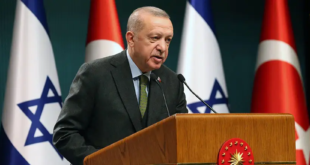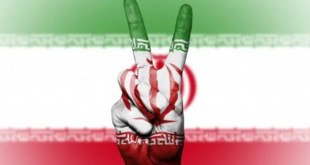Iran’s top nuclear negotiator and EU foreign policy chief Javier Solana announced Thursday they will meet late next week, shortly before Solana is due to report to the UN Security Council on Tehran’s willingness to freeze uranium enrichment.Saeed Jalili said he will meet Solana on November 30, ahead of Solana’s much-anticipated report on the extent of Iran’s cooperation with the West, which is concerned its nuclear programme masks a quest to make an atomic bomb.
Solana must report to the UN Security Council at the end of November on Iran’s willingness to cooperate over its nuclear programme. There had been confusion over the prospect for a meeting between the two after Tehran said the meeting was set but Solana’s office refused to confirm the date.
“I will meet Mr Solana next Friday in London,†Jalili told reporters on the sidelines of a conference in Tehran, specifying that he was referring to November 30. And in Paris, Solana said: “I will meet the Iranian negotiator probably on November 30.â€
Solana has been trying to persuade Tehran to resume talks on suspending uranium enrichment in exchange for a package of political and economic incentives, but Tehran has refused to offer concessions.
Washington accuses Tehran of using its programme as cover for a drive to develop an atomic bomb. Iran strongly denies that charge, saying it wants only to generate electricity.
The US wants a third set of UN sanctions against Tehran to punish its defiance, but Washington’s diplomatic drive is being held up by Chinese and Russian reluctance. President Mahmoud Ahmadinejad reaffirmed Tehran’s defiant stance on Wednesday, saying it would not give “the slightest concession†in the nuclear standoff with the West.
Jalili said he was optimistic about the upcoming talks but indicated there was no chance of Iran giving in on the question of enrichment – the key demand of the European Union and the UN Security Council.
“I am optimistic about the negotiations with Solana. We have a positive view about negotiations and while respecting our duties we say that pressure will not make us renounce our rights,†said Jalili.
He said Tehran would consider any offer in line with the nuclear Non-Proliferation Treaty but “nothing that goes beyond that†– a reference to Iran’s right to enrich uranium.
Jalili met Solana for the first time in Rome last month just after taking office, alongside his predecessor Ali Larijani. He is expected to lead any future negotiations alone.
Meanwhile, International Atomic Energy Agency chief Mohammad Al Baradei told the IAEA’s 35-member board on Thursday the UN nuclear watchdog did not have enough information yet to be absolutely sure that Iran’s nuclear intentions are entirely peaceful.
The IAEA was “unable to provide credible assurance about the absence of undeclared nuclear material and activities,†he said.
“This is especially crucial in the case of Iran, because of its history of undeclared activities, and the corresponding need to restore confidence in the peaceful nature of Iran’s nuclear programme.â€
He added, however, that the IAEA “has no concrete information about possible undeclared nuclear material or weaponisation activities in Iran.â€
 Eurasia Press & News
Eurasia Press & News



